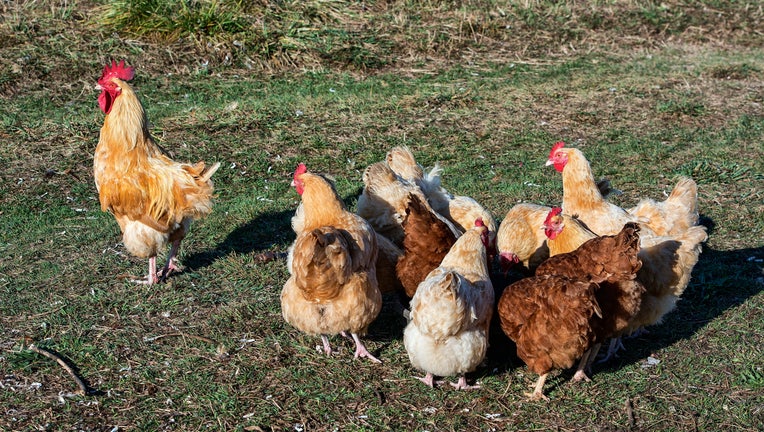Bird flu-infected poultry in Racine County

Free range chickens. (Photo by John Greim/LightRocket via Getty Images)
RACINE COUNTY, Wis. - The Wisconsin Department of Agriculture, Trade and Consumer Protection (DATCP) announced a confirmed case of highly pathogenic bird flu in a poultry flock in Racine County, a release said Friday, April 8.
Samples were tested by the Wisconsin Veterinary Diagnostic Laboratory and confirmed by the National Veterinary Services Laboratories. DATCP and the U.S. Department of Agriculture (USDA) continue working with animal health officials on a joint incident response. Birds on the property have been depopulated to prevent the spread of the disease, a release said.
Three Wisconsin counties – Jefferson, Rock, and Racine – have now been confirmed with HPAI among domestic birds. Last month, the Wisconsin Department of Natural Resources (DNR) announced that five counties – Dane, Columbia, Grant, Milwaukee, and Polk – were confirmed with HPAI among the wild bird population. Poultry owners are asked to continue using strong biosecurity practices and, when possible, move their birds indoors.
FREE DOWNLOAD: Get breaking news alerts in the FOX6 News app for iOS or Android
DATCP also encourages poultry owners to register their premises. State law requires that all livestock owners register where their animals are kept, and registration helps animal health officials during disease outbreaks.
Signs of HPAI in infected birds include:
- Sudden death without clinical signs
- Lack of energy or appetite
- Decrease in egg production; soft, misshapen eggs
- Purple discoloration of wattles, comb, and legs
- Difficulty breathing
- Runny nose, coughing, sneezing
- Stumbling or falling down
- Diarrhea
To report increased mortality or signs of illness among domestic birds, contact DATCP at 608-224-4872 (business hours) or 800-943-0003 (after hours and weekends).
Featured
National Zoo Lovers Day at The Racine Zoo
Brian has details on this year’s camps and how the kids can learn to love the zoo through up close encounters with their animals.


